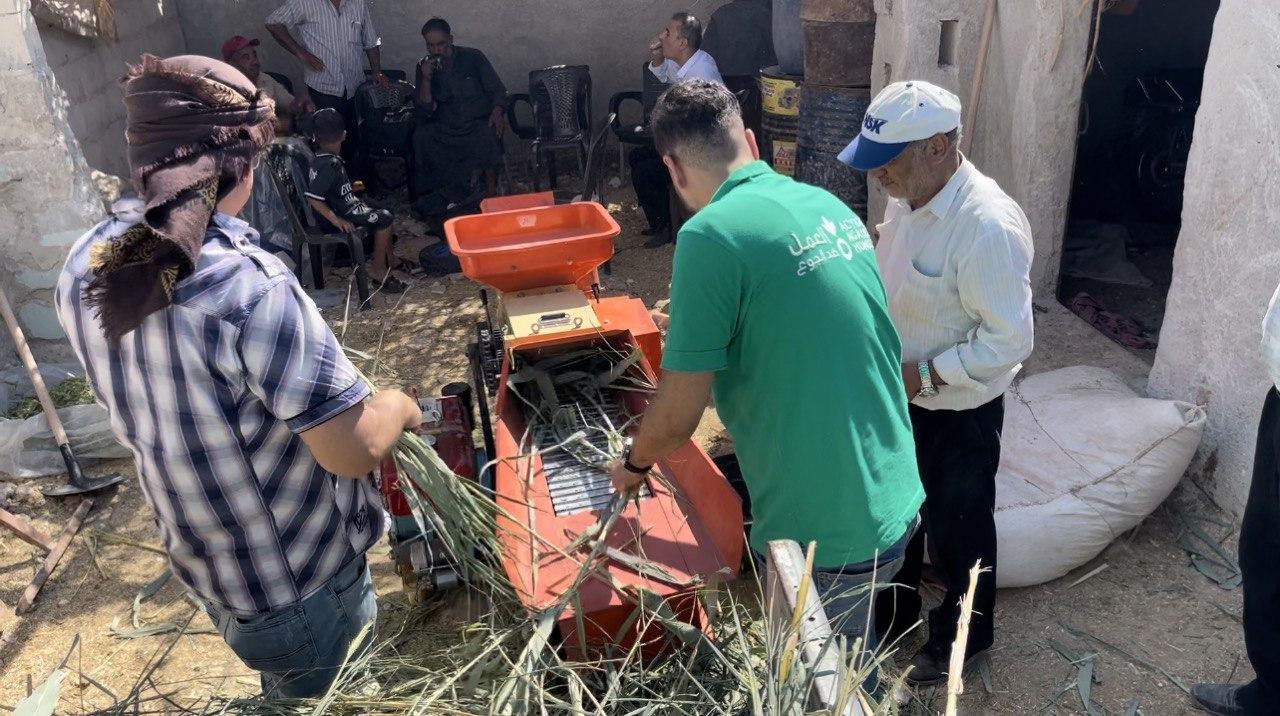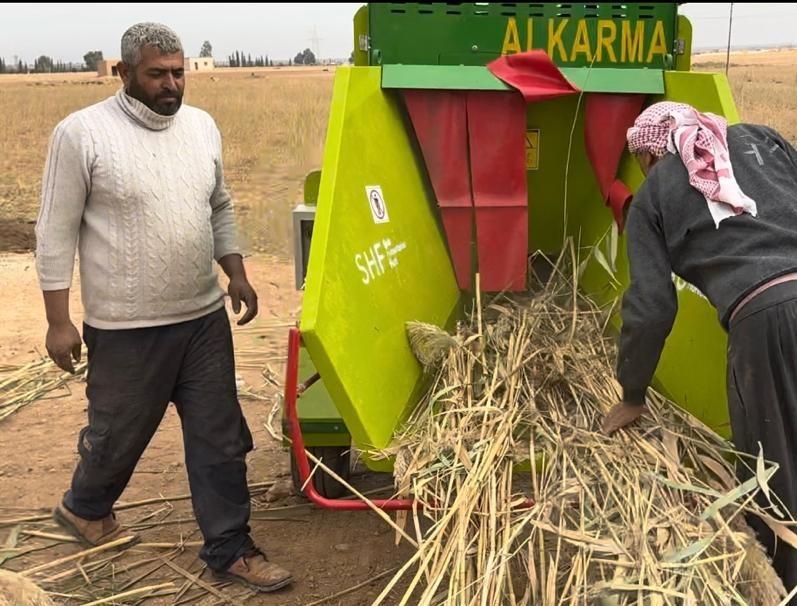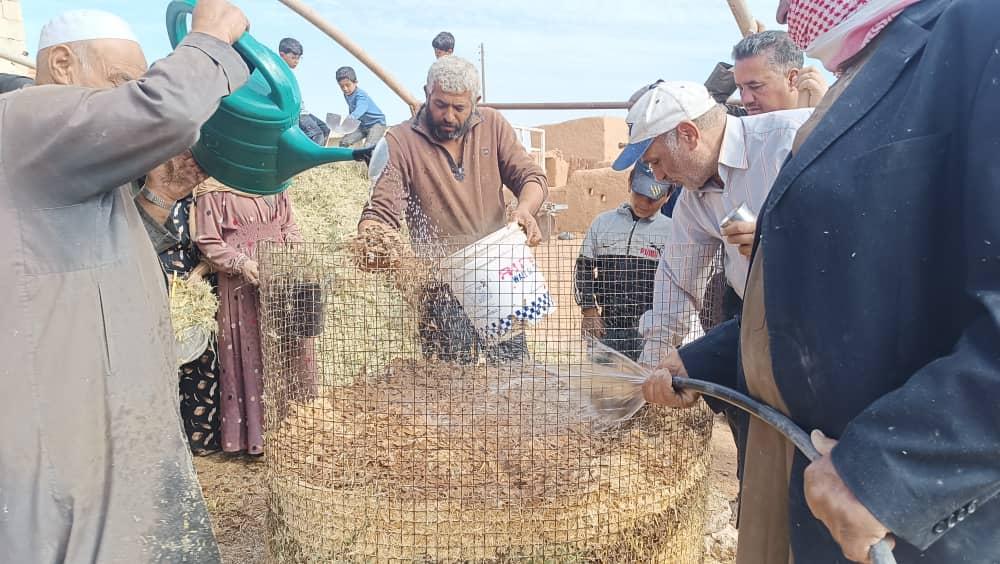

RESTORING LIVELIHOODS IN SYRIA: IBRAHIM'S JOURNEY TO AGRICULTURAL RENEWAL
Ibrahim, a 45-year-old farmer and livestock keeper, is a father of four living in a village in Aleppo Governorate. Like many others in his community, he has faced huge challenges due to the prolonged conflict in Syria. Years of instability led to the loss of essential livelihood assets, making it difficult to sustain his family's agricultural and livestock activities.
"After several years of conflict in Syria, we have lost many of the assets we once relied on for our livelihood. We are also struggling to afford the agricultural inputs needed to resume our activities as before, such as fertilizers, seeds, and fodder. This has forced us to sell some of our sheep and leave a large portion of our farmland uncultivated. Additionally, the spread of invasive plants has blocked up agricultural drainage and increased soil salinity, rendering the land unusable," Ibrahim shared.
To address these challenges, Action Against Hunger, with funding from the Syria Humanitarian Fund, launched an intervention in Ibrahim’s village. A key component of the activity was clearing the clogged agricultural drainage channels, which had been heavily obstructed by Arundo (reed plant). The blockage had significantly disrupted water flow, worsening soil salinity and further limiting agricultural productivity.
Beyond just clearing the drains, the organization introduced an innovative and sustainable approach through Farm Field Schools (FFS). These schools taught local farmers how to repurpose the removed Arundo plants into valuable agricultural resources. Ibrahim, along with other farmers, learned how to transform these invasive plants into silage, compost, and fodder cubes, essential inputs for farming and livestock feeding.

"My home became a learning hub where our FFS sessions were conducted," Ibrahim recounted. "We were provided with specialized equipment, including grinders and presses, to help process the Arundo plants efficiently. With the grinder, we shredded about 12 tons of Arundo, producing more than 4 tons of silage and over 6 cubic meters of compost."
Ibrahim’s experience in the program extended beyond his own farm. He actively participated in four additional field schools held near his village, gaining extensive knowledge and skills. Inspired by the training, he and his fellow farmers are now considering launching a large-scale project to produce and sell silage, creating a sustainable business model for their community.

"We are deeply grateful for the knowledge and equipment provided to us. These tools will enable us to reduce fodder and fertilizer costs while ensuring access to organic, clean products. This project has given us a renewed sense of hope and stability, and we are excited to turn these challenges into opportunities," Ibrahim concluded.
